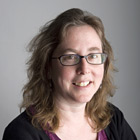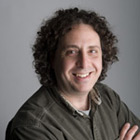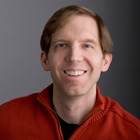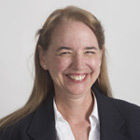Washington, DC
June 1-3, 2016
Conference Website
The overarching goal of the 2016 PI meeting is to engage the DR K-12 community in building and sharing new knowledge, best practices, and tools critical to increasing the impact and sustainability of our work over time.
Wednesday, June 1
6:45 pm – 8:00 pm, Poster Hall, Lincoln 2, 3, & 4
 Investigating How to Enhance Scientific Argumentation through Automated Feedback in the Context of Two High School Earth Science Curriculum Units
Investigating How to Enhance Scientific Argumentation through Automated Feedback in the Context of Two High School Earth Science Curriculum Units
Ou Liu, Educational Testing Service
Amy Pallant and Hee-Sun Lee,The Concord Consortium
The High-Adventure Science: Automated Scoring for Argumentation project builds upon the success of a prior NSF-supported project, High-Adventure Science. In addition to promoting students’ understanding of Earth’s complex systems, this project supports students’ scientific argumentation practices through real-time automated scoring, diagnostics, and feedback.
Thursday, June 2
2:15 pm – 3:45 pm, Madison A&B
 Scientific Modeling across the K–12 Continuum: Alignment between Theoretical Foundations and Classroom Interventions
Scientific Modeling across the K–12 Continuum: Alignment between Theoretical Foundations and Classroom Interventions
Dan Damelin, The Concord Consortium
Cory Forbes, University of Nebraska–Lincoln
Joseph Krajcik and Christina Schwarz, Michigan State University
Nanette Marcum-Dietrich, Millersville University of Pennsylvania
Cynthia Passmore, University of California, Davis
Explore methods and challenges associated with supporting and evaluating scientific modeling in K–12 classrooms in this structured poster session.
Poster Session
4:30 pm – 5:45 pm, Poster Hall, Lincoln 2, 3, & 4
View our posters in the DR K-12 virtual poster hall »
 Common Online Data Analysis Platform (CODAP)
Common Online Data Analysis Platform (CODAP)
William Finzer and Dan Damelin, The Concord Consortium
Joan Heller, Heller Research Associates
Cliff Konold, PRISM
CODAP provides an easy-to-use web-based data analysis platform, geared toward middle and high school students, and aimed at teachers and curriculum developers. CODAP can be incorporated across the curriculum to help students summarize, visualize and interpret data, advancing their skills to use data as evidence to support a claim.
 Guiding Understanding via Information from Digital Environments (GUIDE)
Guiding Understanding via Information from Digital Environments (GUIDE)
Chad Dorsey and Frieda Reichsman, The Concord Consortium
Eric Wiebe North Carolina State University
GUIDE will investigate how to best support students and teachers as they use Geniverse in the classroom. Powered by an intelligent tutoring system (ITS) developed by partners at NCSU, the GUIDE system will provide real-time feedback on student progress, identify problem areas and give both teachers and students assistance and strategies for success.
 High Adventure Science: Earth’s Systems and Sustainability
High Adventure Science: Earth’s Systems and Sustainability
Amy Pallant, The Concord Consortium
Elaine Larson, National Geographic Education Program
High-Adventure Science is bringing some of the big unanswered questions in Earth and Space Science to middle and high school science classrooms. Students investigate the mechanisms of climate change, learn how scientists use modern tools to find planets around distant stars, and evaluate whether underground stores of water will be sufficient to support a growing population.
 Model My Watershed – Teaching Environmental Sustainability
Model My Watershed – Teaching Environmental Sustainability
Melinda Daniels, Stroud Water Research Center
Nanette Marcum-Dietrich, Millersville University
Carolyn Staudt, The Concord Consortium
The Teaching Environmental Sustainability: Model My Watershed project teaches a systems approach to problem solving through modeling and hands-on activities based on local watershed data and issues. Middle and high school students will act in their communities while engaging in solving problems they find interesting.
 SmartCAD: Guiding Engineering Design with Science Simulations
SmartCAD: Guiding Engineering Design with Science Simulations
Charles Xie, The Concord Consortium
Jennifer Chiu, University of Virginia
Alejandra Magana, Purdue University
SmartCAD: Guiding Engineering Design with Science Simulations is developing a computer-aided design (CAD) system that is capable of automatically generating formative feedback to guide students through complex engineering design based on analyzing design artifacts computationally.
 Supporting Secondary Students in Building External Models
Supporting Secondary Students in Building External Models
Dan Damelin, The Concord Consortium
Joseph Krajcik, Michigan State University
Michigan State University and the Concord Consortium are collaborating to examine how to support secondary school students in constructing and revising models based on disciplinary core ideas and crosscutting concepts to explain scientific phenomena and solve problems.
Friday, June 3
9:15 am – 10:45 am, Jefferson
 Leveraging Open Source Tools across NSF-funded Projects: Partnerships, Integration Models, and Developer Communities
Leveraging Open Source Tools across NSF-funded Projects: Partnerships, Integration Models, and Developer Communities
Amy Busey, Education Development Center, Inc.
Dan Damelin and William Finzer, The Concord Consortium
Discuss the potential utility of CODAP and other open source tools in your work, effective cross-project partnerships, and supporting developer communities around open source materials.





